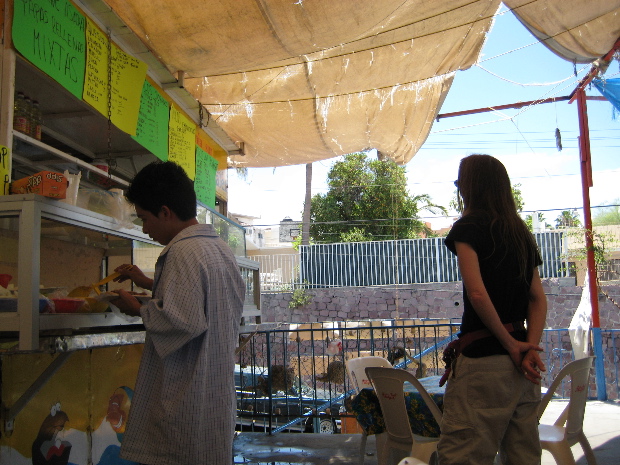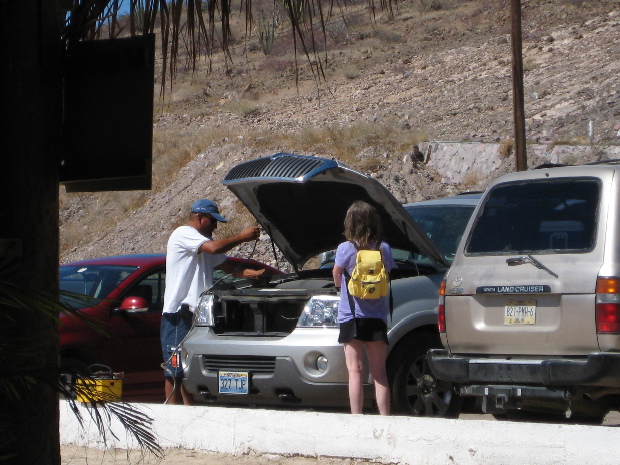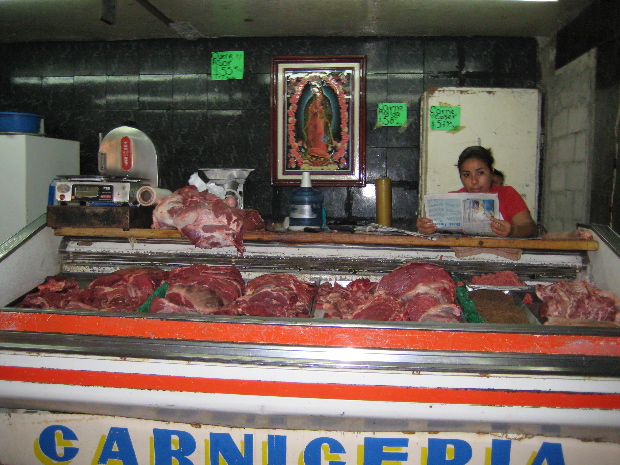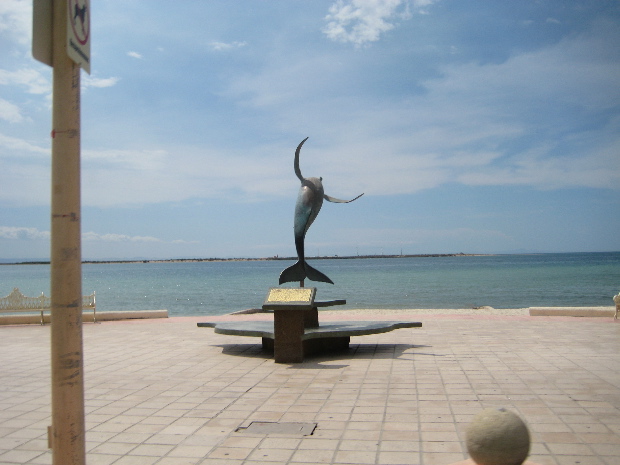
The most important thing to know about everyday Mexican culture is that it’s organized around a system of subtle but highly formal and ritualized courtesies between people. Even when you have business to conduct in Mexico, the situation — at a gas pump, a cashier’s stand in a department store, a roadside taquería — is first and foremost social, not commercial. If you treat a Mexican waiter or merchant or clerk as a functionary, if you get right down to business or generally act as if you’re in a hurry to conclude it, the Mexican is likely to see you, quite correctly, as a barbarian.
Mexicans are accustomed to Yankees behaving like barbarians. They have a defensive reserve when dealing with gringos. We saw pompous middle-aged Yankees, soi-disant sportsmen, ordering dignified waiters and bartenders around as though they were children. The waiters and bartenders took a little extra time doing what they were told, and if you caught their eye in such moments, they would offer the slightest trace of a smile . . . and a shrug. A civilized person can never be humiliated by a barbarian — only saddened, or amused.
But if you take your time, look them in the eye, exchange greetings like a civilized human being, they are more than likely to break out in wide smiles and treat you with an almost familial warmth. If you show them that you’re interested in them, they become interested in you, interested in what you want, interested in helping you get it. The situation has become personal — humane.
The moment of greeting, of establishing a personal contact, can be very brief, but it must entail a perceptible pause, an unhurried ease, a sense that nothing will or should happen until the two of you have sized each other up and shown each other respect. Your Spanish can be dreadful — it’s the timing and the demeanor of the parties that define the interchange.
Mexicans are never servile, but they have a servile mask they can assume when dealing with barbarians. It’s a mechanism for getting through with the interaction as quickly and painlessly as possible. It has a melancholy quality, too — because in truth they are feeling sorry for you. But nothing delights a Mexican more than being of service to a compadre. Accommodation and co-operation are values of the highest order in Mexico — a legacy of its revolutionary history and a necessity in an underdeveloped economy.

When we took our cruise to the Isla Espíritu Santo I left the
lights of my car on. When we got back the battery was dead.
The guy who rents the kayaks at Pichilingue instantly went to his car,
pulled it around to mine and got out his jumper cables. But we
couldn’t get my car into neutral without power and so couldn’t push it
out close enough to the guy’s car to hook the engines up. The guy
went and got his boat battery, which charged my engine enough to allow
the shift to neutral. We pushed the car next to his and soon had
it going again. He never once gave the impression that he was
doing me a favor. When I slipped him 100 pesos afterwards he
nodded gravely but didn’t look at the bill — just tucked it into his
pocket. The gesture had been enough — but the gesture was very
important.

Bargaining in Mexico is a game between equals, conducted not for financial advantage to either party, but for fun. We saw fellow tourists angrily and self-righteously berating a hotel clerk for not honoring some sort of discount coupon, treating the clerk like an imbecile. The clerk, who spoke perfect English, pretended not to understand what they were saying.
But when my sister haggled with a hotel clerk for a reduced room rate by
suggesting, with a face that was a little too perfectly straight, that
her children were weeping and fainting in the car from heat exhaustion,
the clerk laughed . . . and reduced the rate. Once a hotel clerk
told my sister that he couldn’t reduce his rates because it was high
season. “But high season is in February,” she replied. The
clerk looked around furtively, pressing a finger to his lips.
“Tell no one,” he said. My sister laughed . . . and he reduced
the rate. The game had been played well.

Some mornings in La Paz I would go across the street from our hotel to a little food stand in a park, for a cup of coffee. It cost eight pesos and I would always leave the señora behind the counter ten pesos, which she always accepted with a mixture of gracious formality and genuine delight. Once my sister joined me for coffee and when she went to pay for it, the señora felt it was her duty to tell my sister that I customarily left a two-peso tip. I think she was afraid that my sister might embarrass herself, and perhaps compromise my own honor, by forgetting this tiny, infinitesimal courtesy.
[Photos © 2007 Harry Rossi]

Tks Lloyd for a fascinating perspective on your travels. Makes me lament what we have lost in our allegedly “advanced” societies.
Tony — thanks so much for your comment! In some areas we've “advanced” too far . . . beyond everyday graciousness and civility, for example.
I think you're dead right about the senora at the coffee stand. The tip comment wasn't about the money, or about me. It was about respecting you, and your intercourse with her, which clearly she valued. As I know you did.